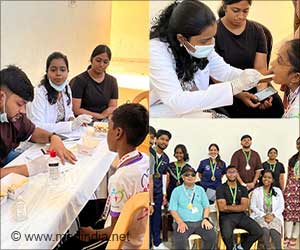
‘Children’s Kidney transplant care can be made customized according to the patient’s need if genetic sequencing is used.’
Tweet it Now
The findings indicate that such a sequencing strategy may help individualize pre- and post-transplant care for many young kidney transplant recipients.Nearly one-third of pediatric kidney transplant recipients in a recent study had a genetic cause of their kidney disease that investigators identified through a technique called whole-exome sequencing (WES). The findings suggest that such genetic analyses may be useful for guiding the care of many young kidney transplant patients.
Causes of chronic kidney disease (CKD) in children and young adults differ greatly from those in older individuals. Preliminary research suggests that WES may help identify mutations that contribute to kidney dysfunction in young patients with CKD or kidney failure, which could help clinicians offer more personalized treatment. To assess the potential of WES for use in such patients, a team led by Friedhelm Hildebrandt, MD and Nina Mann, MD (Boston Children's Hospital) studied 104 children who had received a kidney transplant from 2007 through 2017. Patients' WES data from blood or saliva were examined for deleterious variants in approximately 400 genes known to cause CKD.
Through the use of WES, the researchers identified a genetic cause of CKD in 34 of the 104 (32.7%) patients. The likelihood of detecting a genetic diagnosis was highest for patients with the urinary stone disease, followed by renal cystic ciliopathies, steroid-resistant nephrotic syndrome, congenital anomalies of the kidney and urinary tract, and chronic glomerulonephritis. "In this study, we found that almost one-third of children who underwent kidney transplantation had a genetic cause for their kidney disease. In several cases, identifying the genetic etiology could help to guide the care of these patients," said Dr. Hildebrandt.
Source-Eurekalert















